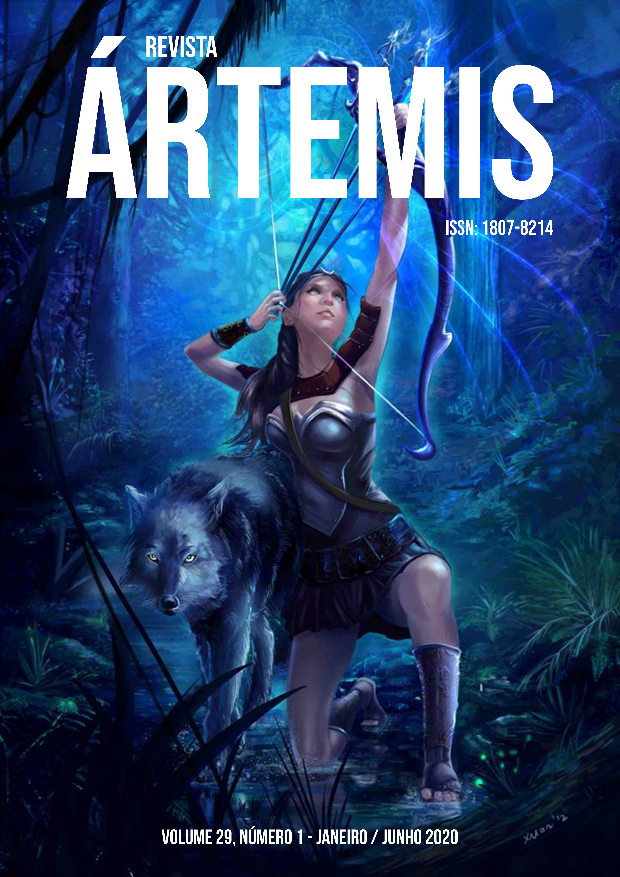Eveline and Elvira: feminine subjectivities in intertextual dialogue
DOI:
https://doi.org/10.22478/ufpb.1807-8214.2020v29n1.52034Abstract
This text aims at analyzing the intertextuality between the short stories “Eveline”, by Irish writer James Joyce, and “A Fuga/The escape”, by the Brazilian writer, Clarice Lispector, investigating their aesthethic, narrative and sociocultural relations and the ways they complement one another in their depiction of feminine subjectivity. To that end, we support the discussion with theoretical principles on intertextuality (Bakhtin, 1987; Kristeva, 1980; Samoyault, 2008) in articulation with discussions by other critics (Allen, 2000; Stam, 2003). We support the discussion on subjectivity through Culler’s text (1999), “Identity, identification and the subject”. The results reveal the relevance of approaching intertextuality not only from the perspective of authors, who activate and rescue previous texts, thus reenacting them in other contexts, but also from the perspective of reception, as a function of reading and interpretation. In other words, the reader’s critical capacity has a significant function in the articulation of texts and in the intertextual resonances it generates. Since the present research also compares different authors, belonging to different historical and cultural contexts, we also use the Bakhtinian concept of chronotope, so as to contribute, more generally, to the field of comparative studies.







